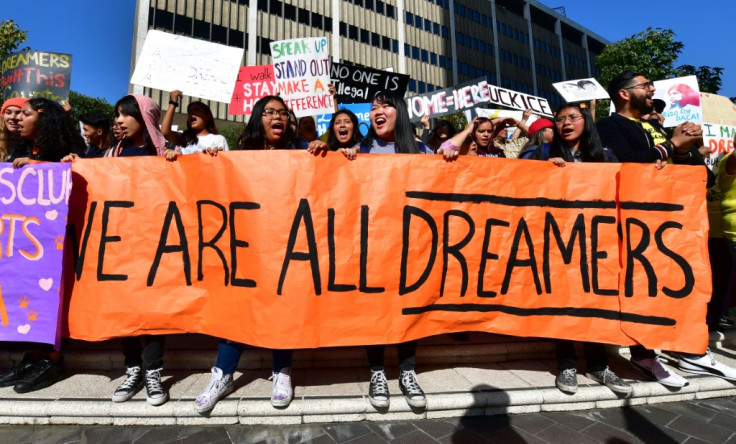
NEW YORK CITY - Following years of legal threats and controversies, DACA recipients have settled and shown to have made major contributions to the economic progress of the U.S. over the last decade, a new study shows.
The U.S. Immigration Policy Center at the University of California, San Diego, United We Dream, The National Immigration Law Center and the Center for American Progress have partnered for nearly a decade to analyze the experiences of DACA recipients. This year, their responses include 560 recipients across 43 states and Washington, D.C.
The survey shows recipients have had on different sectors of the country, including education, employment and the economy.
"We've been surveying DACA recipients for nearly a decade. This year's survey stands out because it shows that DACA recipients are more integrated in the American economy than they have ever been," Tom K. Wong, founding director of the U.S. Immigration Policy Center at the University of California, San Diego, said.
The Deferred Action for Childhood Arrivals, DACA, first established by the Obama administration in 2012, provides undocumented immigrants who meet certain requirements the opportunity to live in the U.S. for two years— subject to renewal— without the fear of deportation.
"In the nearly 12 years since its creation, DACA has been a catalyst for positive change in the lives of recipients, like my own, helping us reach educational milestones, contribute more to the economy, and achieve financial stability as well as improve our families' overall well-being," said Rosa Barrientos-Ferrer, senior policy analyst at CAP.
One of the benefits of DACA is the opportunity to apply for employment authorization, which allows recipients to work legally in the United States. With work authorization, DACA recipients have access to career advancement, better wages, benefits and opportunities to find better career fits, the study argues.
The recently published study shows that more than 9 out of 10 respondents (94%) are currently employed. This represents a significant increase over the past years, even when compared to pre-pandemic levels. The 2019 survey showed that 89.2% of respondents were employed.
The survey also shows that, after receiving DACA, 59% of respondents moved to a job with better pay, 47.3% moved to a job with better working conditions, and 47% to a job that "better fits [their] education and training."
The work authorization component of DACA also allows recipients to pursue more robust education and employment opportunities, leading them to earn higher incomes and make greater tax and economic contributions to their communities.

"DACA recipients are earning more than they ever have, which has enlarged their economic footprint," Wong said. "Recent studies have shown that the economic contribution of immigrants have been crucial to the country's post-pandemic bounce back and in fighting inflation... and DACA recipients are at the forefront of this."
Recipient's hourly wages have more than doubled in the past decade, from $11.92 to $31.52 per hour, an increase of 164%, the survey shows.
With higher earnings, DACA recipients pay more in taxes and are able to spend more, helping local, state and federal economies and strengthening social insurance programs. In 2022, recipients earned $27.9 billion in annual wages as employees and employers, and they contributed nearly $2.1 billion to Social Security and Medicare.
But despite these numbers, DACA has endured several political and legal challenges since its creation in 2012. In September 2023, for instance, U.S. District judge Andrew Hanen ruled against DACA for the second time, allowing current recipients to remain eligible to renew their grants of the program but continuing to block first-time applicants from receiving DACA protections.
An appeal of Judge Hanen's decision is pending before the U.S. Court of Appeals for the 5th Circuit, and the case is expected to head to the Supreme Court.
Given its uncertain future, the study also looked at what the consequences of life without DACA may be. From unstable working conditions to decreased opportunities in education and even a decreased possibility of using public institutions, DACA recipients would feel the impact of its dissolution from different sectors of society.
"Every single one of us would feel the impact if DACA were to end," Karen Fierro Ruiz, federal policy and advocacy manager of United We Dream said. "The continued uncertainty about the future of the program is a constant reminder that we must build toward permanent stability and a pathway to citizenship."
© 2024 Latin Times. All rights reserved. Do not reproduce without permission.







